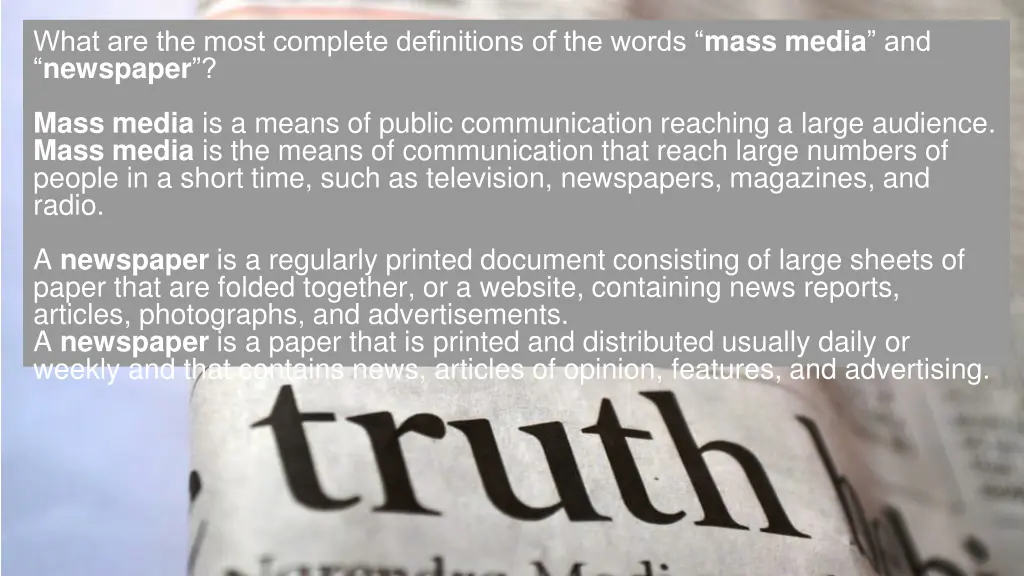
Mass Media and Newspapers in Great Britain
Explore the role of mass media and newspapers in Great Britain, including the history and influence of popular newspapers like The Times, The Daily Telegraph, and The Guardian. Learn how mass media plays a central role in informing, educating, and entertaining the public.
Download Presentation

Please find below an Image/Link to download the presentation.
The content on the website is provided AS IS for your information and personal use only. It may not be sold, licensed, or shared on other websites without obtaining consent from the author. If you encounter any issues during the download, it is possible that the publisher has removed the file from their server.
You are allowed to download the files provided on this website for personal or commercial use, subject to the condition that they are used lawfully. All files are the property of their respective owners.
The content on the website is provided AS IS for your information and personal use only. It may not be sold, licensed, or shared on other websites without obtaining consent from the author.
E N D
